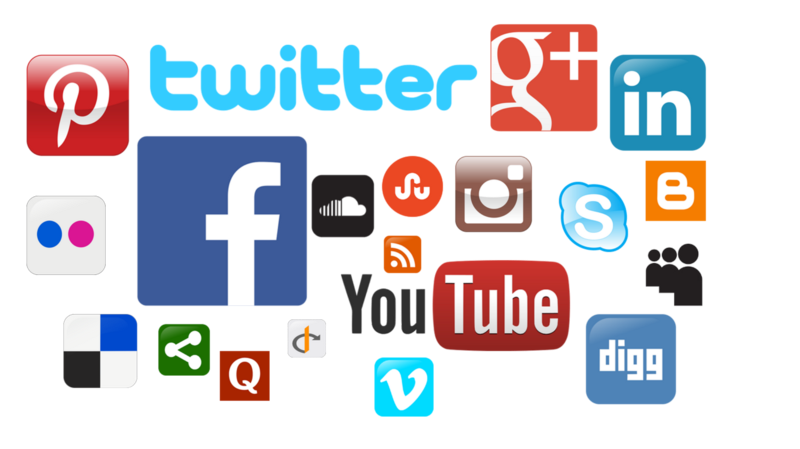Social Media Trends That Need to End

Courtesy of Wikimedia Commons
Written By Austin Hall (@ADWAustin)
Back in college, I once posted on Facebook: “You use LOL like a defense mechanism.” At the time, I felt that this was an astute way of railing against the artificial way we all interact with each other between screens. In hindsight, it’s pretty pretentious and an overreaction to a simple platitude. Still, there’s just something about the inauthentic way we speak with each other when not person-to-person that has always irked me. Honestly, it should irk you too.
Some of the below examples are used for good: many have been used to educate and advocate for (in my eyes) a more progressive and just world. That’s all fine and good, but if you use these as a joke, as a way to cover your head in the sand and detach yourself from the reality of this world, you’re doing yourself, and the people around you, a disservice. And believe me, I’ve done some of it, so I’m not much more high and mighty either.
A THREAD:
People show how their thoughts must be strung together in various ways, but I can’t think of a more obnoxious way to state that than “A THREAD”. It’s the social media way of saying “in this essay I will” which reminds me of academic papers I was forced to read in college. If you have something to say that’s longer than the characters allotted, either link to your blog or keep writing new tweets/posts/comments. Twitter even gives you the option to “show thread” so everyone reading your first tweet already knows you have more to say.
The thread trend should only be reserved for education and advocacy, like the one below:
Unless you have a well researched history lesson like the example above, leave the thread template alone.
ALL CAPS:
In a medium where you have punctuation mark that shows the ire of your fury (“!”) you really don’t need to capitalize each word as if it’s gospel and absolutely must be read! Sure, it sticks out, but so do sore thumbs.
Claps:
Putting a clap after each word makes what you’re saying harder to read and will absolutely not sway anyone to your cause if they don’t already agree with you. I know that this is an attempt to amplify what is being said, and in certain instances, the words between the clap emojis can make a statement, but this is rarely pulled off.
“This.”:
It’s completely redundant when a simple retweet, repost or “like” will do.
Weird Capitalization:
A lot of comedians (including some of my favorites) use this by not capitalizing “I” or the first word in a new sentence, for example. The joke is that they’re too cool to take the time to use proper capitalization. The problem with this is that it literally takes more of an effort to do this, since capitalization is automatic. If you need to spend more time to appear lazy, what are we really doing here?
“Louder for the people in the back!”:
Are we in a classroom all of a sudden? Much like the “This.” example, a simple retweet, repost or “like” will do.
“Cancel” Culture:
I will go on record by saying that “cancel culture”, which basically amounts to someone doing or saying something disgusting, getting called out and losing their previous stature in their area of profession, can be a useful tool to shine a light on powerful people and what they can get away with. The thing is, it isn’t as effective as people make it out to be, and it never will be. I’m not saying it should end, I’m just saying that we should reevaluate its use, and if it really leads us to a greater good.
Gender Reveal Parties:
I feel like this is the first trend to become anachronistic as it became a meme. As we have begun to redefine what gender means, saying “It’s a boy/girl!” has become more of a thing of the past for some new parents. Personally, I don’t think any reveal party will be better than the one below:
Censoring Swears:
I don’t get it, man. If you are in a field where you can’t use swear words anyway, then don’t use it. If you’re trying to make sure the kiddies don’t know what you’re really saying, it won’t take long for them to find out. The same goes for censoring names of problematic people. What’s the point? You actively want to make sure they don’t see what you’re saying? Who are you talking to, then, and why? If you want to call someone out, don’t hide behind passive aggressiveness. Speak out and call them out directly. All you really need to do is @ them, or at least write their full name.
Telling Someone They’ve Been Burned on Tumblr:
You could make the argument that Tumblr is the most famous niche site that isn’t terrible. Everyone is completely anonymous and can use that anonymity to talk about fun and nerdy theories along with important social justice issues. But, again, it’s anonymous, so if someone ends up saying some bigoted bile, they will never show their face. Should they be called out for it? Absolutely! Is this burn going to affect how they view the world? Possibly! (Hopefully). Does telling them they’ve been burned useful? Probably not!
Posting About Things You Want to End on a Medium Blog Thinking That They Will:

Want to keep up with PubSquare Media? Follow us on Facebook, Twitter, and Instagram!



